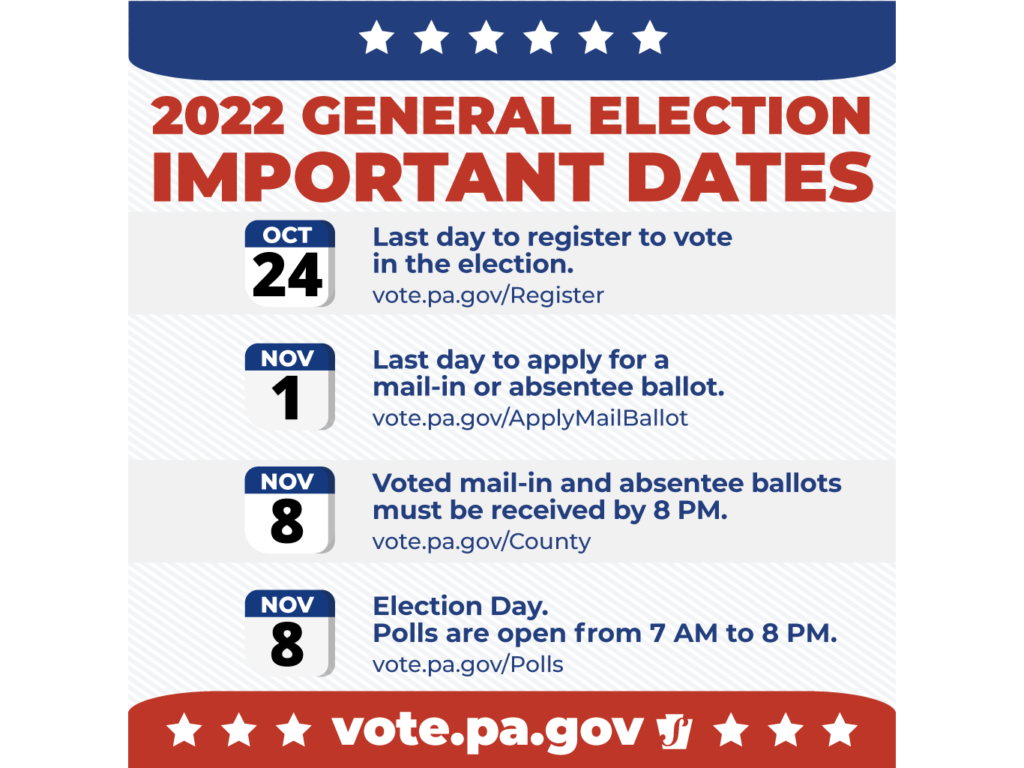Part 2 – Pennsylvania’s Executive Branch
Last week’s post included a primer on the five parties represented on this year’s general election ballot in Pennsylvania.[1] If you vote here, you will see them in the races for Governor, Lieutenant Governor, US Senator, and possibly others down-ballot. I’ve never seen this wide a spread for parties in general election races (at least not since I’ve been paying attention), and I was encouraged by the thought that this could indicate the first baby steps away from our two-party system.
I was also intrigued by what I saw when comparing candidates’ positions on various issues across the parties, especially whenever the third-party options appeared to be addressing the majority in the middle, rather than extreme special interests on the ends of the spectrum. For more detail on that, check out my candidate spreadsheet, which you can download from the bottom of this post. But for now, let’s take a look at the up-ballot offices in question.

Image credit: [2]
Governor’s Race
We elect (or reelect) our governor every four years, with each individual limited to two terms. (Our current governor, Tom Wolf, is coming to the end of his second term, meaning it’s an open race.) Eligible candidates must be at least 30 years old and must be able to demonstrate US citizenship and residence in that state for seven years preceding the election. The salary for this office is $213,026 per year.[3]
The role of the governor includes overseeing executive agencies within the state: s/he will appoint secretaries of the agencies and essentially set their priorities. While it is the state legislature that has power over appropriating funds to the agencies, the agencies themselves answer to the governor. The governor is also responsible for the state budget, which s/he must present annually to the General Assembly for approval. The governor is capable of recommending legislation to the General Assembly and has the power to sign or veto bills passed by both houses, though any vetoes are (currently) subject to a ⅔ override.
Gubernatorial powers were a key focus within the state over the last two years, specifically as they related to the ongoing COVID-19 pandemic. There was pushback against Wolf’s emergency declarations that began in the form of a 2020 resolution to end the declaration. Wolf vetoed it, and it didn’t have enough support for a veto override. Despite that, some members of the legislature kept pushing the narrative that shutdowns did more harm than good and introduced two amendments to the state constitution: one that enables the legislature to remove the Governor’s authority to make emergency declarations, and one that limits the length of a governor’s disaster declaration from 90 to 21 days and shifts the governor’s emergency management powers to the legislature.[4]
Both of these constitutional amendments passed in two consecutive legislative sessions and received a majority of support on a statewide ballot initiative in the May 2021 election, making them part of the Pennsylvania constitution. Even with these very significant steps to limit the governor’s authority, rhetoric about centralized power and botched pandemic response have remained central talking points for the upcoming election.

Image credit: [5]
Other talking points of note from candidates on one end of the spectrum to the other include: abortion, energy independence, LGBTQ+ rights, election integrity, school choice, second amendment rights, and law enforcement / incarceration issues. It is important to remember that with a conservative supermajority in the US Supreme Court, there will be a trend toward more state-level decisions whenever the federal position on a subject is murky. The governor of Pennsylvania will be able to sign or veto any legislation that crosses his/her desk, affecting all Pennsylvanians. It is also important to remember that no matter who wins the governor’s race in November, the state legislature remains heavily conservative – and is expected to continue to be.
Lieutenant Governor’s Race
Pennsylvanians now elect our Lieutenant Governor on a ticket with our Governor. That was either new in the 2018 election or something of which I was previously unaware because I learned this piece of information the hard way. In doing my research ahead of time, I had chosen candidates from different parties, respectively, and had to make a split-second decision in the booth when I learned I had to pick a ticket. My feelings about the candidate for lieutenant were stronger than for the candidate for governor, so I went with that ticket and got what I felt was a mixed bag of pros and cons (but isn’t that always the case?) Because of this – in my opinion – limitation of our system, I have noted gubernatorial running mates in the Lieutenant Governor section of my candidate research spreadsheet (see below), since I continue to refrain from listing party affiliation of the candidates in hopes of limiting bias (mine and others’).
Candidates for this office must be at least 30 years old and have been a US citizen and resident of the state for seven years prior to the election. There are no term limits for this office, and the annual salary is $178,940. In parallel to the US Vice President, the Pennsylvania Lieutenant Governor presides over the state senate, casting a vote in the case of ties. The holder of this office is in charge of the Board of Pardons for the state and the PA Emergency Management (PEMA) Council. This person is also the first in line to take over the role of Governor for the remainder of the term should the Governor be unable to fulfill his/her duties.[6]

Image credit: [7]
It will be interesting to see the extent to which the Lieutenant Governor’s role as chair of PEMA will shift in light of the changes to the state constitution that grant some of the executive branch’s authority in emergency situations to the legislature. In my brief internet searches to prepare for this post, I was unable to find much of anything, but please feel free to leave a comment below if you have any additional information. Certainly, the COVID-19 pandemic is not over (as much as we may want it to be), but it’s probably safe to assume we won’t see any more emergency declarations regarding the virus.
The other, even lengthier, emergency declaration out of Wolf’s office was related to the ongoing opioid crisis in our state. However, thanks to powers granted by the new constitutional amendments, the state legislature chose to let that declaration expire in August 2021, despite the fact that substance abuse and overdose deaths have been on an upward trajectory since the beginning of the pandemic.[8]
It’s probably fair to say that the Lieutenant Governor will be dealing with this issue in one way or another: if it’s not on the front end with emergency management support to address it as a public health crisis, it will probably be on the back end as a law enforcement issue. And that means we should be paying attention to the candidates’ stances on the criminal justice system, particularly when it comes to punishment and rehabilitation.
~
Next week we’ll continue on to examine the races that will determine Pennsylvania’s representation at the federal level, in both the US House and Senate. In the meantime, feel free to take a look at what our candidates for Governor and Lieutenant Governor have to say on various issues:
Thanks for reading!
[1] https://radicalmoderate.online/november-2022-elections-part-1/
[2] https://www.vote.pa.gov/readytovote/Pages/ReadytoVoteToolkit.aspx
[4] https://radicalmoderate.online/may-2021-election-guide-pa-primaries-part-1/
[8] https://www.governor.pa.gov/newsroom/opioid-disaster-declaration-to-end-aug-25/
2 Comments
Galen · October 9, 2022 at 10:26 am
I wasn’t aware of the delineation of responsibilities for governor and lieutenant governor, especially the latter. It makes sense that the LG would have specific responsibilities, but I guess I never really thought about it.
It will be interesting (scary) to see how the amendments to the state constitution limiting the governor’s powers will affect COVID and opioid crisis responses, and any other emergencies that may pop up, moving forward. The changes strike me as shortsighted power grabs by the legislature that run the risk of hampering the state government’s ability to effectively protect and care for its citizens.
Alison · October 9, 2022 at 12:41 pm
This isn’t the end of it. There’s a constitutional amendment in the works now that could create a pathway for the legislature to overturn the governor’s executive orders in the name of “checks and balances.” I had hoped to write something about this bill (linked below) before the election, but this series is already ballooning more than I expected…
https://capitalandmain.com/how-an-anti-abortion-bill-in-pennsylvania-could-also-undermine-climate-laws